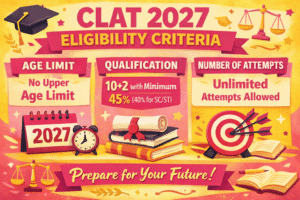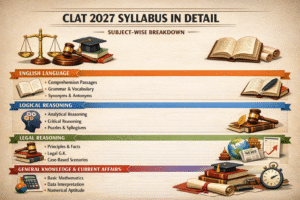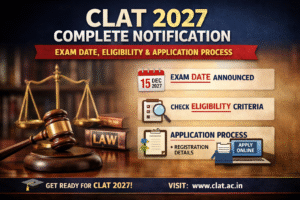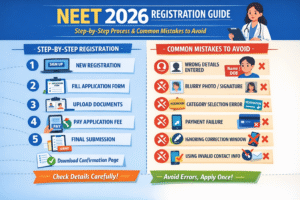1. My friend was habitual to drive a car at very high speed.
🔴 Error in (b) – “habitual to drive”
✅ Correction: “My friend was in the habit of driving a car at very high speed.”
Explanation: The word habitual is an adjective, and it should be used as “in the habit of doing something” rather than “habitual to drive.”
2. Being a day of national mourning the offices were closed and the national flag flew half mast.
🔴 Error in (c) – “half mast”
✅ Correction: “The national flag flew at half-mast.”
Explanation: The correct expression is “at half-mast”, which refers to the position of the flag when it is flown midway to show mourning.
3. If you are wanting to watch the birds nesting you must not let them see you.
🔴 Error in (a) – “are wanting”
✅ Correction: “If you want to watch the birds nesting, you must not let them see you.”
Explanation: The verb “want” is a stative verb, meaning it does not take the continuous form (i.e., “wanting” is incorrect).
4. He does not listen to what I say, although I am advising him for a long time.
🔴 Error in (c) – “I am advising him for a long time”
✅ Correction: “He does not listen to what I say, although I have been advising him for a long time.”
Explanation: The present continuous (“I am advising”) is incorrect because the action has been happening for a long time. The present perfect continuous tense (“have been advising”) should be used.
5. It is most essential for us to reach the station before noon lest we should miss the train.
✅ No error.
Explanation: The sentence is grammatically correct. The phrase “lest we should” is used correctly to indicate a negative possibility.
6. I asked him what had brought him there.
✅ No error.
Explanation: The sentence is in correct past perfect tense (had brought) for a past event. No correction is needed.
7. The guards dare not to harm him.
🔴 Error in (c) – “dare not to harm”
✅ Correction: “The guards dare not harm him.”
Explanation: The verb “dare” when used in a negative sentence does not take “to” before the following verb. It should be “dare not harm”, not “dare not to harm.”
8. The Principal looks very worried because students are on strike for the last fifteen days as a protest against…
🔴 Error in (b) – “are on strike for the last fifteen days”
✅ Correction: “The Principal looks very worried because students have been on strike for the last fifteen days as a protest against…”
Explanation: When referring to an action that started in the past and continues into the present, we use the present perfect continuous tense (“have been on strike”), not simple present (“are on strike”).
Summary of Corrections:
- habitual to drive → in the habit of driving
- half mast → at half-mast
- are wanting → want
- I am advising → I have been advising
- ✅ No error
- ✅ No error
- dare not to harm → dare not harm
- are on strike → have been on strike
9. The king was embarrassed to find evidences against his own queen.
🔴 Error in (b) – “evidences”
✅ Correction: “The king was embarrassed to find evidence against his own queen.”
Explanation: The word “evidence” is an uncountable noun and does not have a plural form. It should always be used in singular form without “s”. If needed, we can say “pieces of evidence.”
10. As I prefer coffee than tea my friends always take the trouble to get me a cup of coffee whenever I visit them.
🔴 Error in (a) – “prefer coffee than tea”
✅ Correction: “As I prefer coffee to tea, my friends always take the trouble to get me a cup of coffee whenever I visit them.”
Explanation: The verb “prefer” is always followed by “to” (not “than”) when comparing two things. The correct structure is “prefer X to Y.”
Summary of Corrections:
- evidences → evidence
- prefer coffee than tea → prefer coffee to tea






